Plenary Speakers
David Packard Chair of Engineering
Director, Center for Neural Engineering
University of Southern California
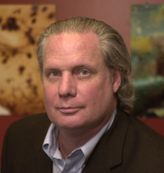
Prof. Theodore W. Berger research involves the complementary use of experimental and theoretical approaches to developing biologically constrained mathematical models of mammalian neural systems. The focus of the majority of current research is the hippocampus, a neural system essential for learning and memory functions. The goal of this research is to address three general issues: (1) the relation between cellular/molecular processes, systems-level functions, and learned behavior; (2) the extent of which the functional dynamics of neural systems are altered by activity-dependent synaptic plasticity; (3) the extent to which the essential functions of a neural system can be incorporated within a hardware representation (e.g., VLSI circuitry).
Experimental studies involve the use of extracellular, intracellular, and whole-cell electrophysiological recording techniques, applied in vivo using anesthetized and chronically implanted animals, and in vitro using hippocampal slice preparations. A number of neurobiological issues are being investigated, including: (1) quantifying the signal processing capabilities of hippocampal neurons and the extent to which these capabilities reflect regulation due to feedforward and feedback circuitry vs. intrinsic neuronal mechanisms, such as voltage-dependent conductances or second messenger biochemical systems; (2) the spatio-temporal distribution of activity in neural networks and its dependence on input pattern and network connectivity; (3) the cellular mechanisms underlying changes in the strength of connections among neurons, i.e., synaptic plasticity, and the influence of synaptic plasticity on signal processing characteristics of neurons and the spatio-temporal distributions of activity in networks.
These and other experimental studies are used in conjunction with several different theoretical approaches to develop models of: (1) the nonlinear, input/output properties of single hippocampal neurons and circuits composed of several populations of hippocampal neurons (in collaboration with Dr. V. Marmarelis, Biomedical Engineering, USC), (2) the hierarchical relationship between synaptic and neuronal events (in collaboration with Dr. G. Chauvet, Institute for Theoretical Biology, University of Angers, France), (3) the kinetic properties of glutamatergic receptor subtypes, and (4) adaptive properties expressed by the "hippocampal-like" neural networks implemented with analog VLSI technology (in collaboration with Dr. B. Sheu, Electrical Engineering, USC).
Associate Professor, Department of Bioengineering,
Jacobs School of Engineering,,
University of California, San Diego
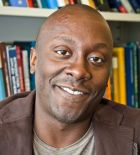
Prof. Todd P. Coleman joined the Jacobs School of Engineering in 2011 as an associate professor in the Department of Bioengineering. He received bachelor’s degrees in electrical engineering (summa cum laude), as well as computer engineering (summa cum laude) from the University of Michigan, Ann Arbor, in 2000, along with master’s and doctoral degrees in electrical engineering from the Massachusetts Institute of Technology , Cambridge, in 2002, and 2005. During the 2005-06 academic year, he was a postdoctoral scholar in computational neuroscience at MIT and Massachusetts General Hospital. From fall 2006 until June 2011, he was an assistant professor of Electrical & Computer Engineering and Neuroscience at the University of Illinois, Urbana, Champaign.
Dr. Coleman, a National Science Foundation Graduate Research Fellowship recipient, was awarded the University of Michigan College of Engineering’s Senior Class Prize in 1999 and was awarded the MIT EECS Department’s M. J. Levin Award for Best Masterworks Oral Thesis Presentation in 2002. In fall 2008, he was a co-recipient of the University of Illinois College of Engineering’s Grainger Award in Emerging Technologies for development of a novel, practical timing-based technology. Beginning fall 2009, he served as a co-Principal Investigator on a five-year NSF IGERT interdisciplinary training grant for graduate students, titled “Neuro-engineering: A Unified Educational Program for Systems Engineering and Neuroscience”. Coleman also has been serving on the DARPA Information Science and Technology study group for a three-year term, beginning fall 2009. He was a Fellow with the University of Illinois Center for Advanced Study for the 2010-11 academic year.
Rehabilitation Institute of Chicago,,
Associate Professor, Departments of Physical Medicine,
Northwestern University
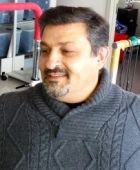
Prof. Yasin Y. Dhaher is an Associate Professor in the Departments of Physical Medicine and Rehabilitation and Biomedical Engineering at Northwestern University (NWU). In addition, he is senior research scientist at Rehabilitation Institute of Chicago (RIC) where he is the Director of the Searle Center for the Science of Walking at RIC. The central theme of Dr. Dhaher’s research is to understand the basic biomechanical and neurophysiological properties of the lower limb after neurological and musculoskeletal lesions. The primary goal of these investigations is to evaluate and improve rehabilitation interventions after neurological and musculoskeletal disabilities. His research program has investigated various pathologies such as stroke, spinal cord injury, visual vertigo, and osteoarthritis and joint injuries. In addition to focusing on the basic science related to these pathologies, his research has also often expanded to include treatment interventions for these diseases.
Over his tenure at NWU/RIC, Dr. Dhaher’s research program is/was anchored by a Whittaker Foundation, NIH, DOE-NIDRR, NSF, and DOD grants. In addition, Dr. Dhaher have served as mentor on a number of pre-doctoral awards (funded by the American Heart Association (AHA) and the Arthritis Foundation), post-doctoral awards (AHA and NIH-NRSA), Institutional Research and Academic Career Development Awards (NIH K12), and Patient-Oriented Research Career Development Award (NIH K23).
Dr. Dhaher has assumed a number of national and international leadership roles notably serving as an associate editor for the IEEE Transaction on Biomedical Engineering (TBME), the steering committee of the International Conference on Rehabilitation Robotics (ICORR) and a standing member of the MRS study section, National Institutes of Health (NIH). Dr. Dhaher have contributed to conference organization by organizing specific scientific sessions and symposia within his own areas of expertise as well as serving as sessions Chair and co-Chair for broader themes and tracks.
Bioinformatics Institute (BII) Singapore

Birgit Eisenhaber’s research interest is focused on the discovery of molecular functions of previously uncharacterized protein coding genes. The development of accurate prediction tools for proteins’ posttranslational modifications and subcellular localization are one of the key points in her work. Birgit Eisenhaber studied biocybernetics and medicine at the Pirogov Medical University in Moscow. After working as a professional software developer, she restarted her scientific career at the EMBL Heidelberg in the group of Peer Bork. She received her PhD from the Humboldt University Berlin. Subsequently, she worked as a postdoctoral research fellow at the Institute of Molecular Pathology (IMP) Vienna and at the Experimental Therapeutics Centre (ET C) Singapore. In December 2010, Birgit Eisenhaber was appointed as a Principal Investigator at the Bioinformatics Institute (BII) Singapore.
Bioinformatics Institute A*STAR Singapore

Frank Eisenhaber's research interest is focused on the discovery of new biomolecular mechanisms with theoretical and biochemical approaches and
the functional characterization of yet uncharacterized genes and
pathways. Frank Eisenhaber is one of the scientists credited with the
discovery of the SET domain methyltransferases, ATGL, kleisins, many new
protein domain functions and with the development of accurate prediction
tools for posttranslational modifications and subcellular localizations.
Frank Eisenhaber studied mathematics at the Humboldt-University in
Berlin and biophysics and medicine at the Pirogov Medical University in
Moscow. He was awarded a MD in 1985. Three years later, he received the
PhD in molecular biology from the Engelhardt Institute of Molecular
Biology in Moscow (supervision by Dr. Vladimir Gayevich Tumanyan). After
postdoctoral work at the Institute of Molecular Biology in Berlin-Buch
(1989-1991) and at the EMBL in Heidelberg (1991-1999), he worked as
teamleader of the bioinformatics research group and head of the general
IT department at the Institute of Molecular Pathology (IMP) in Vienna
(1999-2007). Since August 2007, he is the Director of the Bioinformatics
Institute A*STAR Singapore.
Department of Mechanical Engineering,
National Taiwan University
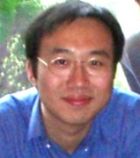
Prof. Shih-Kang Fan received the B.S. degree from National Central University, Taiwan ROC, in 1996, the M.S. and Ph.D. degrees from University of California, Los Angeles (UCLA), USA, in 2001 and 2003, respectively.
He joined the Institute of Nanotechnology at National Chiao Tung University as Assistant Professor in February 2004 and promoted to Associate Professor in August 2009. He moved to the Department of Mechanical Engineering, National Taiwan University in August 2012. His research interests are in the areas of microfluidics, nanomanipulations, and biochips.
Department of Neurorehabilitation Engineering
Bernstein Center for Computational Neuroscience Göttingen
University Medical Center Göttingen
Georg-August University, Germany
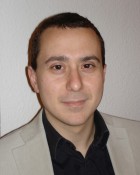
Prof. Dario Farina obtained the MSc degree in Electronics Engineering from the Politecnico di Torino, Torino, Italy, in 1998, and PhD degrees in Automatic Control and Computer Science and in Electronics and Communications Engineering from the Ecole Centrale de Nantes, Nantes, France, and Politecnico di Torino, respectively, in 2000 and 2001. After a period (2002-2004) as Research Assistant Professor at Politecnico di Torino, he moved to Aalborg University, Denmark, where he was an Associate Professor in Biomedical Engineering (2004-2008) and then Full Professor in Motor Control and Biomedical Signal Processing (2008-2010). In the latter period, he has been the Head of the Research Group on Neural Engineering and Neurophysiology of Movement at Aalborg University. In 2010 he was appointed Full Professor and Founding Chair of the Department of Neurorehabilitation Engineering at the University Medical Center Göttingen, Georg-August University, Germany, within the Bernstein Center for Computational Neuroscience Göttingen. His research spans engineering, physiology, neuroscience, and clinical sciences in a translational approach and focuses on the study of neural control of movement and on methods to replace, restore, and modulate lost or impaired motor functions. He has contributed specifically to the fields of biomedical signal processing and modeling, neurorehabilitation, and neurophysiology of movement. Within these areas, he has (co)-authored more than 200 papers in peer-reviewed Journals and more than 300 conference papers/abstracts, book chapters and encyclopedia contributions. Moreover, several novel results of his research, such as various bioelectrodes, have been patented and are now already on the biomedical market. Since 2010 Prof. Farina is the Vice-President of the International Society of Electrophysiology and Kinesiology (ISEK). He is the recipient of several international awards, among which the 2010 IEEE Engineering in Medicine and Biology Society Early Career Achievement Award, conferred “for outstanding contributions to biomedical signal processing and electrophysiology, with fundamental applications in the study of the neural control of movement and in motor rehabilitation”. Prof. Farina is a member of the Editorial Boards of five International Journals, including IEEE Transactions on Biomedical Engineering. He has been the coordinator or partner of several European and national (Italian and Danish) projects and in 2011 the European Research Council awarded him an Advanced Research Grant, which is the most prestigious individual research grant provided by the European Community.
National Institute of Applied Optics,
National Research Council,
Napoli, Italy
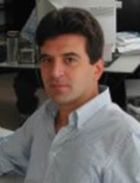
Dr. Pietro Ferraro received the doctor of Physics degree, summa cum laude, from the University of Napoli “Federico II”, Italy, in 1987. Soon after he joined Aeritalia-Alenia Aeronautics (the major Aerospace company in Italy) as researcher to develop applied research in Optical Non-Destructive Testing of carbon fiber materials. He has been Principal Investigator (PI) (1991-1993) on behalf of Composite Materials Research Center of Alenia for two R&D Projects in the frame of a Cooperative Research And Development Agreement (CRADA) between Finmeccanica (Roma) and United Technologies Research Center, Electronics & Photonics Group (Directed by Dr. A.J. De Maria), East Hartford, CT (USA).
Currently he is Director of the Research Unit/Labs INOA in Napoli (7 optical labs and 20 persons of staff).
He has worked on a number of areas in optics research ranging from laser interferometry, holography for optical characterization of materials, components and devices, including MEMS, MOEMS, waveguides, etc. ), optical fiber sensors, holographic lithography, micro- and nano- structuring of ferroelectric optical crystals (LiNbO3) for application in photonics.
He is now pursuing his interests in micro- nano- structuring advanced ferroelectric photonic crystals and materials, poling, photorefractivity, quantitative phase-contrast microscopy by digital holography for in-vivo cells investigation, 3D imaging and display either with visible and IR laser light. In addition he is leading his group in optical microdevices and instrumentations development based on LiNbO3 such as phase-array, point-diffraction-interferometer, microfluidic structures.
Dr. Ferraro has published over 130 papers in optics/photonic in peer reviewed journals. He has published over 150 conference proceedings, including over 20 invited international conference papers and presentations.
He has completed 3 book chapters and is currently being Editor of a book Micro-/Nanoengineering and characterization of Ferroelectric Crystals for Photonic Applications, Springer (Germany) .
He has 12 patents, some of which have been licensed by industry.
He is Topical Editor of Optics Letters, member of the Editorial Board of the Optics and Lasers in Engineering Journal (Elsevier) and Member of Int. Editorial Board of Measurement & Science Technology Journal (Institute of Physics) and Editor of Research Letters in Optics (Hindawi).
Professor, Friederich Schiller University, Jena, Germany.
Director, Multidimensional Microscopy Laboratory,
Randall Division of Cell & Molecular Biophysics, King's College London.
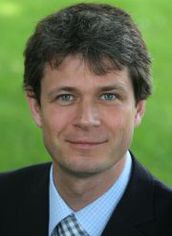
Prof. Rainer Heintzmann is Department Head at the Institute of Photonic Technology, Jena, Germany and University Professor at the Friedrich Schiller University, Jena. He studied physics in Osnabrück, and acquired his Ph.D. in Heidelberg. He was Research Assistant at the University of Göttingen and is still Senior Research Fellow at King's College London, UK.
Dr. Heintzmann's research focusses on imaging cellular function at high resolution. His group develops techniques to measure multidimensional information in small biological objects such as cells, cellular organelles or other small structures of interest. A further interest is in computer-based reconstruction methods.
Director, Translational Neural Engineering Lab
Center for Neuroprosthetics and Institute of Bioengineering
School of Engineering, Ecole Polytechnique Federale de Lausanne (EPFL),
Neural Engineering Area, Head
The BioRobotics Institute
Scuola Superiore Sant'Anna, Pisa, Italy
Prof. Silvestro Micera received the University degree (Laurea) in Electrical Engineering from the University of Pisa, in 1996, and the Ph.D. degree in Biomedical Engineering from the Scuola Superiore Sant’Anna, in 2000. From 2000 to 2009, he has been an Assistant Professor of BioRobotics at the Scuola Superiore Sant’Anna where he is now Associate Professor and the Head of the Neural Engineering group. In 2007 he was a Visiting Scientist at the Massachusetts Institute of Technology, Cambridge, USA with a Fulbright Scholarship. From 2008 to 2011 he was the Head of the Neuroprosthesis Control group and an Adjunct Assistant Professor at the Institute for Automation, Swiss Federal Institute of Technology, Zurich, CH. In 2009 he was the recipient of the “Early Career Achievement Award” of the IEEE Engineering in Medicine and Biology Society. From 2011 he is Associate Professor and Head of the Translational Neural Engineering Laboratory at the EPFL.
Dr. Micera’s research interests include the development of hybrid neuroprosthetic systems (interfacing the central and peripheral nervous systems with artificial systems) and of mechatronic and robotic systems for function and assessment restoration in disabled and elderly persons.
He is author of more than 80 ISI scientific papers and several international patents. He is currently Associate Editor of IEEE Transactions on Biomedical Engineering and of IEEE Transactions on Neural Systems and Rehabilitation Engineering. He is also member of the Editorial Boards of the Journal of Neuroengineering and Rehabilitation and of Journal of Neural Engineering.
Head, Motor Control Laboratory and the Neuroplasticity Laboratory,
Department of Health Science and Technology,
The Faculty of Medicine,
Aalborg University, Denmark

Prof. Natalie Mrachacz-Kersting obtained the M.Ed. degree in Human Movement Science fromthe University of Western Australia, Perth, Australia, in 1997, and the PhD degree in Biomedical Engineering from Aalborg University, Aalborg, Denmark in 2005. In 2005-2007 she has been a lecturer at the Department of Sport and Exercise Science, The University of Auckland, Auckland,New Zealand and in 2007-2009 an assistant professor in Motor Control at Aalborg University, Aalborg, Denmark. Since 2009 she has worked as associate professor at the Department of Health Science and Technology at Aalborg University, Aalborg, Denmark. There she is the head of two laboratories, the Motor Control Laboratory and the Neuroplasticity Laboratory. She acts as referee for numerous journals. Her main research interest is focused on the role of feedback from muscleafferents in both motor control and neural plasticity.
Nara Institute of Science and Technology,
Japan
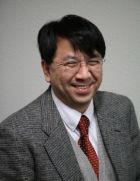
Prof. Jun Ohta was born in Gifu, Japan in 1958. He received the B.E., M.E., and Dr. Eng. degrees in applied physics, all from the University of Tokyo, Japan, in 1981, 1983, and 1992, respectively. In 1983, he joined Mitsubishi Electric Corporation, Hyogo, Japan, where he engaged in the research on optoelectronic integrated circuits, optical neural networks, and artificial retina chips. From 1992 to 1993, he was a Visiting Researcher in Optoelectronics Computing Systems Center, University of Colorado at Boulder, where he engaged in the research on smart CMOS sensors. In 1998, he joined Graduate School of Materials Science, Nara Institute of Science and Technology (NAIST), Nara, Japan as Associate Professor. He was appointed as Professor in 2004. His current research interests are vision chips, CMOS image sensors, retinal prosthesis, biomedical-photonic LSIs, integrated photonic devices.
Pasteur Institute,
Paris, France
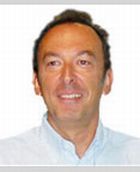
Jean-Christophe Olivo-Marin, PhD, is the head of the BioImage Analysis Unit and the chair of the Cell Biology and Infection Department at Institut Pasteur, Paris. He was a cofounder of the Institut Pasteur Korea, Seoul, where he held a joint appointment as a Chief Technology Officer from 2004 to 2005. Previous to that, he was a staff scientist at the European Molecular Biology Laboratory, Heidelberg, from 1990 to 1998. He received the PhD and HDR degrees in optics and signal processing from the Institut d’Optique Théorique et Appliquée, University of Paris-Orsay, France. His research interests are in image analysis of multidimensional microscopy images, computer vision and motion analysis for cellular dynamics, and in mathematical approaches for biological imaging.
He is a Fellow of the IEEE, past Chair of the IEEE SPS Bio Imaging and Signal Processing Technical Committee (BISP-TC), a senior area editor of the IEEE Signal Processing Letters, and a member of the Editorial Board of the journals Medical Image Analysis and BMC Bioinformatics. He was the general chair of the IEEE International Symposium on Biomedical Imaging in 2008. He has authored or co-authored more than 200 journal and refereed conference papers, holds two patents, and has contributed 3 book chapters on biological imaging.
Distinguished Professor, Department of Electrical and Computer Engineering
University of Florida
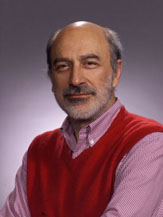
Prof. Jose C. Principe is Distinguished Professor of Electrical and Biomedical Engineering at the University of Florida since 2002. He joined the University of Florida in 1987, after an eight year appointment as Professor at the University of Aveiro, in Portugal. Dr. Principe holds degrees in electrical engineering from the University of Porto (Bachelor), Portugal, University of Florida (Master and Ph.D.), USA and a Laurea Honoris Causa degree from the Universita Mediterranea in Reggio Calabria, Italy. Dr. Principe interests lie in nonlinear non-Gaussian optimal signal processing and modeling and in biomedical engineering. He created in 1991 the Computational NeuroEngineering Laboratory to synergistically focus the research in biological information processing models. He recently received the Gabor Award from the International Neural Network Society for his contributions.
Dr. Principe is a Fellow of the IEEE, Fellow of the AIMBE, past President of the International Neural Network Society, and Past Editor in Chief of the Transactions of Biomedical Engineering, as well as a former member of the Advisory Science Board of the FDA. He holds 5 patents and has submitted seven more. Dr. Principe was supervisory committee chair of 65 Ph.D. and 67 Master students, and he is author of more than 500 refereed publications (3 books, 4 edited books, 14 book chapters, 200 journal papers and 380 conference proceedings).
Swiss Federal Institute of Technology (ETH),
Professor, Spinal Cord Injury Center,
University of Zurich - Balgrist University Hospital
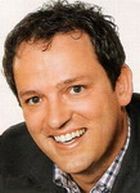
Robert Riener is Full Professor for Sensory-Motor Systems at the Department of Health Sciences and Technology, ETH Zurich. He has been Assistant Professor for Rehabilitation Engineering at ETH Zurich since Mai 2003. In June 2006 he was promoted to the rank of an Associate Professor and in June 2010 to the rank of a Full Professor. As he holds a Double-Professorship with the University of Zurich, he is also active in the Spinal Cord Injury Center of the Balgrist University Hospital (Medical Faculty of the University of Zurich).
Robert Riener studied mechanical engineering at TU München and University of Maryland, USA, from 1988 till 1993. He received the Dipl.-Ing. degree and the Dr. degree from the TU München in 1993 and 1997, respectively. In 1993 he joined the Institute of Automatic Control Engineering, where he has pursued research into neuroprosthetics. After postdoctoral work at the Centro di Bioingegneria, Politecnico di Milano from 1998 to 1999, he returned to the TU München, where he finished his Habilitation in the field of Biomechatronics about multi-modal VR applied to medicine in January 2003. Since his activity in Zurich Riener develops robots and interaction methods for motor learning in rehabilitation and sports.
His current research interests involve human motion synthesis, biomechanics, virtual reality, man-machine interaction, and rehabilitation robotics. He authored and co-authored more than 400 peer-reviewed journal and conference articles and 20 patents. He is a member of several scientific societies (e.g., IEEE/EMBS, DGBMT/VDE, IFESS) and an associate editor of several scientific journals. For his development of the arm therapy robot ARMin, he was awarded with several prizes including the humanTech Innovation Prize and the Swiss Technology Award. He was awarded also with the IEEE TNSRE Best Paper Award 2010 and the euRobotics Technology Transfer Awards 2011 and 2012.
John G. Searle Chair in Rehabilitation Research, Rehabilitation Institute of Chicago
Professor, BME, McCormick School of Engineering
Professor, Physiology, Feinberg School of Medicine
Northwestern University
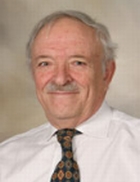
Prof. W. Zev Rymer's research concerns regulation of movement in normal and disordered human subjects. These studies are conducted at the Rehabilitation Institute of Chicago, and they are directed toward an understanding of skeletomotor reflex function in patients with disorders of muscle tone; another research area is physiological effects of spinal cord injury.
Using electrophysiological, pharmacological and morphological techniques, Dr. Rymer's group is studying the sources of altered motoneuronal responses in spinal segments below a partial or complete spinal cord transection. The objectives are to identify the key transmitters and/or neuromodulators responsible for altered responses and to develop compounds that may counteract these abnormalities in human subjects.
Defense Advanced Research Projects Agency (DARPA)
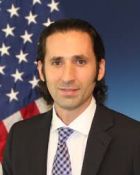
Dr. Justin Sanchez joined DSO as a program manager in 2013. At DARPA, Dr. Sanchez will explore neurotechnology, brain science and systems neurobiology.
Before coming to DARPA, Dr. Sanchez was an Associate Professor of Biomedical Engineering and Neuroscience at the University of Miami, and a faculty member of the Miami Project to Cure Paralysis. He directed the Neuroprosthetics Research Group, where he oversaw development of neural-interface medical treatments and neurotechnology for treating paralysis and stroke, and for deep brain stimulation for movement disorders, Tourette’s syndrome and Obsessive-Compulsive Disorder.
Dr. Sanchez has developed new methods for signal analysis and processing techniques for studying the unknown aspects of neural coding and functional neurophysiology. His experience covers in vivo electrophysiology for brain-machine interface design in animals and humans where he studied the activity of single neurons, local field potentials and electrocorticogram in the cerebral cortex and from deep brain structures of the motor and limbic system.
He is an elected member of the Administrative Committee of the IEEE Engineering in Medicine and Biology Society.
He has published more than 75 peer-reviewed papers, holds seven patents in neuroprosthetic design and authored a book on the design of brain-machine interfaces. He has served as a reviewer for the NIH Neurotechnology Study Section, DoD’s Spinal Cord Injury Research Program and the Wellcome Trust, and as an associate editor of multiple journals of biomedical engineering and neurophysiology.
Dr. Sanchez holds Doctor of Philosophy and Master of Engineering degrees in Biomedical Engineering, and a Bachelor of Science degree in Engineering Science, all from the University of Florida.
Professor, Department of Health Science and Technology, Faculty of Medicine
Aalborg University
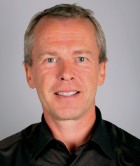
Prof. Thomas Sinkjær's research and teaching interests are within human motor control. His research includes basic studies of the interaction of central neural control and reflex circuitry of the spinal cord and the intrinsic mechanical properties of the skeletal muscle system. His research also involves development of new principles to restore sensory-motor function through neurotechnologies and methods to enhance functional neural plastic changes.
His interests in interdisciplinary research and means to facilitate excellence in curiosity driven research made Thomas Sinkjær accept the position as Director of the Danish National Research Foundation in 2007. In 2008 Thomas Sinkjær played a key role in securing the Foundation 3 billion DKK from the Danish Government increasing the Foundations capital to 4 billion DDK (Dec. 2009). At the same time the Foundation by law is allowed from year 2010 to increase its annual funding in long term basic research endeavors from 250 to 400 million DKK.
From 1983-09, Thomas Sinkjær has published 265 major publications, of which 201 are refereed papers (150 are listed on PubMed, 165 WoS), and the book: “Control of Movement of the Physically Disabled” (Popovic and Sinkjær, pp. 481, Springer, 2000, Second Edition 2003). Furthermore, he has taken out/applied for seven patents. Thomas Sinkjær has been rewarded with several national and international awards. He is a member of academic societies and has been Honorary and visiting Guest Professor at universities in North America and New Zealand. He holds present and past appointment within national and private foundations. Thomas Sinkjær is the co-founder of three companies and on the board of another three companies.
Professor, Department of Mechanical Engineering
Carnegie Mellon University
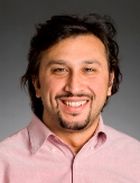
Prof. Metin Sitti received the PhD degree in electrical engineering from University of Tokyo, Japan, in 1999. He was a research scientist at University of California at Berkeley during 1999-2002. He is currently a professor in the Department of Mechanical Engineering and Robotics Institute at Carnegie Mellon. His research interests include micro/nano-robotics, bio-inspired miniature robots and materials, and micro/nano-manipulation. He received the SPIE Nanoengineering Pioneer Award in 2011. He was nominated for the World Technology Award related to health care and medicine in 2009. He has been appointed as the Adamson Career Faculty Fellow in 2007. He received the National Science Foundation CAREER award in 2005. He was elected as the Distinguished Lecturer of the IEEE Robotics and Automation Soceity for 2006-2008. He received the Best Paper Award in the IEEE/RSJ International Conference on Intelligent Robots and Systems in 2009 and 1998, the second prize in the World RoboCup Nanogram Demonstration League in 2010 and 2007, the Best Biomimetics Paper Award in the IEEE Robotics and Biomimetics Conference in 2004, and the Best Video Award in the IEEE Robotics and Automation Conference in 2002. He was the Vice President of the Technical Activities in the IEEE Nanotechnology Council for 2008-2010, and he is the co-editor-in-chief of Journal of Micro/Nano-Mechatronics and an associate editor for the IEEE Trans. on Robotics and ACS Applied Materials and Interfaces.
Reader, Faculty of Engineering,
Department of Bioengineering,
Imperial College
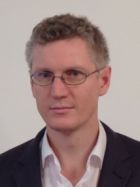
Prof. Simon Schultz grew up in North East Victoria, Australia, attending school in Wangaratta. He graduated with a BSc/BEng from Monash University, in Physics and Electrical Engineering, and from Sydney University with a Masters in Electrical Engineering, before reading for a DPhil in Neuroscience at the University of Oxford. He has held research fellowship positions at New York University and University College London. He is currently Reader in Neurotechnology, and Royal Society Industry Fellow, at Imperial College London, where he directs the Neural Coding Laboratory.
He has been a leader in the development of quantitative, information-theoretic algorithms for the analysis of large neurophysiological datasets, with key highly cited papers on the roles of spike timing and correlations in sensory coding. Research in his group focuses on studying sensory and cognitive neural codes, and how they relate to cortical circuit structure. A current focus is on the use of optical techniques to probe neural circuit function.
He served on the National Committee of the British Neuroscience Association from 2009-13 as Membership Secretary, and is on the Editorial board of the Journal of Computational Neuroscience.
McGowan Institute for Regenerative Medicine,
Professor, Department of Neurobiology,
University of Pittsburg School of Medicine

Prof. Andrew Schwartz is a Professor of Neurobiology at the University of Pittsburgh. Dr. Schwartz received his Ph.D. from the University of Minnesota in 1984 with a thesis entitled “Activity in the Deep Cerebellar Nuclei During Normal and Perturbed Locomotion.” He then went on to a postdoctoral fellowship at the Johns Hopkins School of Medicine where he worked with Dr. Apostolos Georgopoulos, who was developing the concept of directional tuning and population-based movement representation in the motor cortex While there, Schwartz was instrumental in developing the basis for three-dimensional trajectory representation in the motor cortex.
In 1988, Dr. Schwartz began his independent research career at the Barrow Neurological Institute in Phoenix. There, he developed a paradigm to explore the continuous cortical signals generated throughout volitional arm movements. This was done by using monkeys trained to draw shapes while recording single-cell activity from their motor cortices. After developing the ability to capture a high fidelity representation of movement intention from the motor cortex, Schwartz teamed up with engineering colleagues at Arizona State University to develop cortical neural prosthetics. The work has progressed to the point that monkeys can now use these recorded signals to control motorized arm prostheses to reach out grasp a piece of food and return it to the mouth.
Schwartz moved from the Barrow Neurological Institute to the Neurosciences Institute in San Diego in 1995 and then to the University of Pittsburgh in 2002. In addition to the prosthetics work, he has continued to utilize the neural trajectory representation to better understand the transformation from intended to actual movement using motor illusions in a virtual reality environment.
Graduate School of Information Sciences,
Hokkaido University

Prof. Yuzuru Tanaka Yuzuru Tanaka has been a full professor of computer architecture at the Department of Electrical Engineering (1990-2003), then of knowledge media architecture at the Department of Computer Science, Graduate School of Information Science and Technology (2004- ), Hokkaido University, and the director of Meme Media Laboratory (1995- ), Hokkaido
University.
He was also a full professor of Digital Library, Graduate School of Informatics, Kyoto University (1998-2000), has been an adjunct professor of National Institute of Informatics (2004- ), and is also an affiliated scientist of the Institute of Computer Science, Foundation for Research and Technology-Hellas. He is currently one of the 3 series editors of Springer LNAI (lecture Notes in Artificial Intelligence). He is currently a team leader of one of the four teams which are jointly conducting a new national project of Japan (feasibility study:06/2011-03/2012, main project:09/2012-03/2017) on Efficient Social System Services based on Human-Cyber-Physical Infrastructure Systems. This project was initiated by MEXT (Ministry of Education, Culture, Sport, Science, and Technology). His team focuses on efficient snow plowing and removing based on exploratory visual analysis of both probe-car data and a huge variety of related physical and cyber world data, where he extensively applies his framework on improvisational federation of knowledge resources.
Riken Quantitative Biology Center
Kobe, Japan
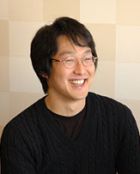
Prof. Hiroki R. Ueda was born in Fukuoka, Japan, in 1975. He graduated from the Faculty of Medicine, the University of Tokyo, in 2000, and obtained his Ph.D in 2004 from the same university. While an undergraduate student, he worked as a research assistant on a biological simulation system project at Sony Computer Science Laboratories. While a graduate student, he next went on to work as a researcher from 2000 and then group leader from 2002 at Yamanouchi Pharmaceutical Co.
He was appointed as a team leader of laboratory for systems biology at RIKEN Center for Developmental Biology (CDB) from April, 2003 and promoted to be a project leader at CDB from September, 2009. He was also appointed as a manager of Functional Genomics Unit at the CDB from October, 2004. He also became a visiting professor in Tohoku University in April, 2005-March, 2006, Tokushima University from April, 2005 and National Institute of Genetics from April, 2010, and an invited professor of biology in Osaka University from April, 2006, and an invited professor of mathematics in Kyoto University from April, 2009.
He identified system-level network structure of mammalian circadian clocks. For this discovery, He received Tokyo Techno Forum 21, Gold Medal (Tokyo Techno Forum 21, 2005), Young Investigator Awards (MEXT, 2006) and IBM Science Award (IBM, 2009). He recently solved the fundamental problem in chronobiology on the underling mechanism of singularity behavior of circadian clock that had been unsolved for more than 30 years. For this discovery, he received a Young Investigator Promotion Awards (Japanese Society for Chronobiology, 2007). He also recently discovered temperature-insensitive reaction in mammalian circadian clock, which will lead to a long-standing problem, "temperature-compensation" of circadian clock. He invented diagnostic method of body time and rhythm disorders, which opens up the new possibility of chronotherapy. For this invention, he received Japan Innovator Awards (Nikkei Business Publications Inc. 2004). His current research interests include systems and synthetic biology of biological timings.
Director of Biocomputing and Bioinformatics Core in Emory-Georgia Tech Center of Cancer Nanotechnology Excellence,
Wallace H. Coulter Dept. of Biomedical Engineering
Georgia Institute of Technology
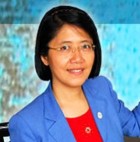
Prof. May D. Wang is associate professor, GCC distinguished cancer scholar and Director of Biocomputing and Bioinformatics Core in Emory-Georgia Tech Cancer Nanotechnology Center at the Wallace H. Coulter Department of Biomedical Engineering at Georgia Tech and Emory University. Dr. Wang’s primary research interest is biomedical and health informatics in systems medicine and healthcare, with the goal to speed up the discovery, development, and translation in modern biology, medicine, and health. She has played an active role in several working groups within National Cancer Institute (NCI/NIH) cancer Biomedical Informatics Grid (caBIG) , and FDA-led Microarray Quality Control Consortium (MAQC) on biomarker and nanomedicine for personalized medicine. As the corresponding or co-corresponding author, Prof. Wang has published in journals such as Annals of Biomedical Eng, BMC Bioinformatics, Trends in Biotechnology, Nature Protocols, Proceedings of National Academy of Sciences, Annual Review of Medicine, and The Pharmacogenomics Journal.
Dr. Wang received Distinguished Cancer Scholar Award from Georgia Cancer Coalition in 2004, an Outstanding Undergraduate Research Faculty Mentor Award from Georgia Tech in 2005, and an Outstanding Service Award from IEEE BIBE in 2007. She is appointed as the Chair of Technical Committee on Information Technology for Health in IEEE Engineering in Medicine and Biology Society (EMBS) in 2011, and serves as associate editors for a couple of journals. Dr. Wang received Ph.D.EE, multidisciplinary MS degrees (EE, Applied Math, and CS) from Georgia Institute of Technology in USA, and BEng from Tsinghua University in China. In addition, Dr. Wang has several years of industrial R&D experience in the former AT&T Bell Labs, Intel Architecture Labs, Hughes Research Labs, Lucent Technologies Bell Labs, and Agere Systems.
Assistan Professor, Department of Biomedical Engineering,
Columbia University
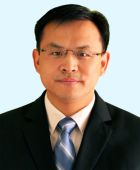
Prof. Qi Wang received his first Ph.D. in Robotics from Harbin Institute of Technology, China, and the second Ph.D. in Electrical and Computer Engineering from McGill University, Canada, in 1998 and 2007, respectively. He received postdoctoral training in Neuroscience at Harvard University from 2006 to 2008. Prior to joining the faculty at Columbia University in January 2013, he held a research faculty position in the Department of Biomedical Engineering at the Georgia Institute of Technology and Emory University. His research interests include neural coding, sensory processing in the brain, brain-machine interfaces, and biomedical instrumentation.
Director, The Stem Cell and Tissue Engineering Laboratory,
Binghamton University
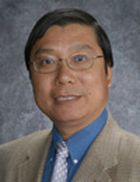
Dr. Kaiming Ye is a Professor and Department Chair, Department of Bioengineering, Watson School of Engineering and Applied Science, Binghamton University, SUNY. Before he joined BU, he was Program Director at Biomedical Engineering Program, National Science Foundation (NSF), managing biomedical engineering and health science funding program.
His research interest focuses on stem cell and regenerative medicine and 3D tissue and organ printing. He has published one book, one patent, and more than 66 papers in the field. He is best known for his creative works on developing 3D scaffolds for directing stem cell pancreatic differentiation, creating fluorescence nanosensors for both in vivo and in vitro continuous glucose monitoring, and formulating recombinant yeast influenza vaccines. His research has been continuously funded by NIH, NSF, JDRF, ABI and industries. He serves as executive/associate editor and editorial board member of 12 journals and has been invited to deliver keynote/plenary speeches at numerous international and national conferences. He has also served on numerous review panels and study sections for NIH and NSF. He is also Program Evaluator of ABET accreditation for Biomedical Engineering Program.
Faculty of Engineering,,
Bar-Ilan University, Israel
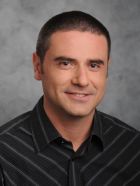
Prof. Zeev Zalevsky received his B.Sc. and direct Ph.D. degrees in electrical engineering from Tel-Aviv University in 1993 and 1996 respectively. Zeev is currently a full Professor in the faculty of engineering in Bar-Ilan University, Israel. His major fields of research are optical super resolution, biomedical optics, nano-photonics and electro-optical devices, RF photonics and beam shaping.
Zeev has published more than 320 refereed journal papers, more than 175 conference proceeding papers, more than 300 international presentations out of which more than 95 were invited or plenary, 30 issued patents and more than 15 patents pending, 5 authored books, 3 books as an editor, 26 book chapters and 4 papers in SPIE Milestone series.
In 2007 Zeev has received the Krill prize given by the Wolf foundation (Wolf prize for young scientists) and in 2008 the International Commission of Optics (ICO) prize and Abbe medal for his contribution to the field of optical super resolution. In 2009 he won the Juludan prize for advancing technology in medicine and in 2010 he was selected to be a fellow of the SPIE for his significant scientific and technical contributions in the multidisciplinary fields of optics, photonics and imaging. In 2011 Zeev received the international SAOT (School for Advanced Optical Technologies) Young Researcher Prize for his pioneering contributions in the development of optical techniques for enhanced imaging resolution and its use for biomedical applications. In 2011 he also received the Lean and Maria Taubenblatt Prize for Excellence in Medical Research for the development of a “Multi-functional bio-medical micro probe”. In 2012 Zeev was selected to be a fellow of OSA for his significant scientific contribution to the field optical super resolution and extended depth of focus imaging. He was also selected to be IEEE senior member for his significant contribution in electro-optics. In 2012 Zeev also received the young investigator award in nanoscience and nanotechnology given by the Israel National Nanotechnology Initiative (INNI) together with the Ministry of Industry, Commerce and Labor and was the winner of the international Wearable Technologies (WT) Innovation World Cup 2012 Prize. In 2013 Zeev has received the Tesla Award for Outstanding Technical Communication in Electro-Optics given by the International Biographical Centre (IBC), Cambridge, UK.